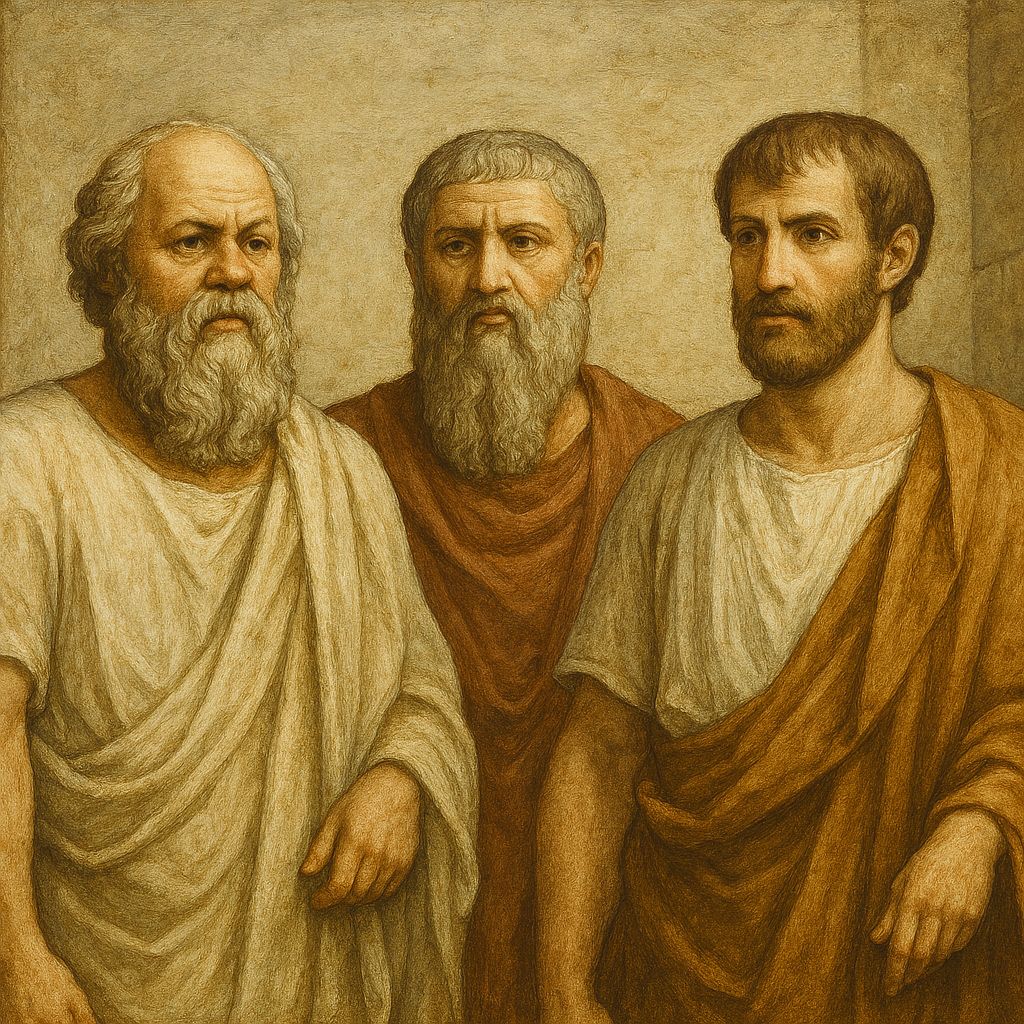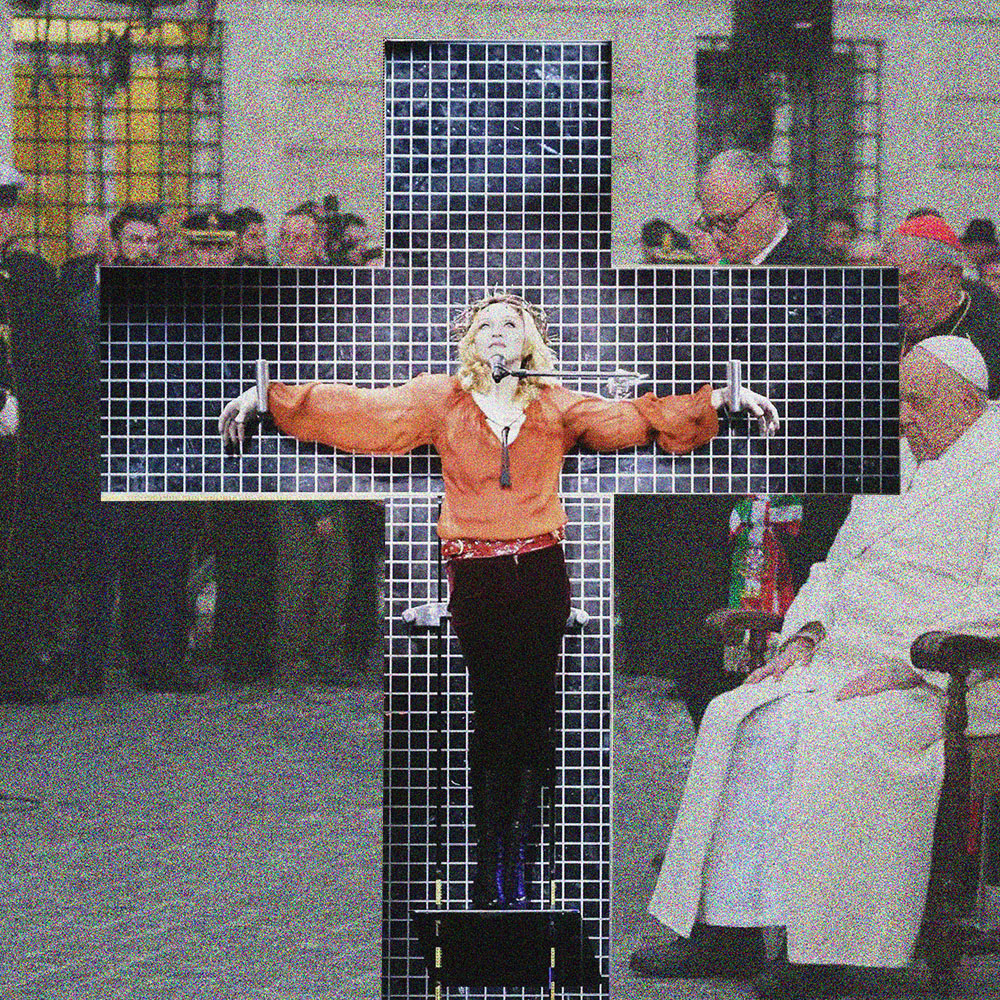Here’s what I figured out about the Philo-Trinity of Ancient Philosophy. We have the anomaly: Socrates. We have the wizard: Plato. And we have the moonchild: Artistotle. This thesis dives into the foundation of philosophy, knowledge, and the concept of truth itself.
Setting: We are in Ancient Athens where democracy and thus rhetoric rules the people!! Every powerful citizen was powerful because they were able to convince other citizen to vote their way. So, naturally this is an arena where everyone is against everyone. Parents want their sons to become the best public speaker as to benefit the family when they’ll be in their old age. So they send them to sophists who teach them the art of convincing other citizens. At this point, the concept of truth isn’t really important, not to the elite at least: they all tried to convince others. Truth was something you made for the followers. Leaders invented “truths”.
Comes Socrates, the wilcard.
He learns from the Oracle that he is the wisest of them all. But he doesn’t know anything. He sees all these people convincing others like they know everything and compared to himself, he doesn’t know a thing. So he understands that he knows he knows nothing. But the Oracle told him he was the wisest of them all! So now he knows no one else knows anything, they all just pretend. With his newfound confidence in his wisdom, he goes at the conquest of Athens. He starts talking to everyone who seems to know something just to show everyone else that they are all ignorant like him. The powerful citizens see this as a threat to their power. So the elite all coalesce, in a political arena where they usually never did, to have him executed for impiety.
Comes Plato, the con artist.
Plato was just like every other sophist. He was trying to teach the sons to convince other citizens. And he saw an opportunity in Socrates. Socrates showed everyone that they didn’t have the truth when they pretended to have it. He had turned the weapon of the elite against themself. And Plato used that weapon against Socrates. When Socrates was saying “none of you is right”, Plato turned it into “I am right.” And as such, Plato invented truth as a real thing. Come to think of it, this is what Plato’s cave is all about. The elite is moving the objects in front of the fire to cast the shadows on the wall. The prisoners are the other citizens, watching the shadows as if they were real thing. So the followers are the people who think truth exists. Plato himself doesn’t believe in truth. To him, it’s the noble lie! The noble lie he needed because he was trying to make grand. And he did it!
Comes Aristotle, the moonchild.
Aristotle is Plato’s finest creation. Plato invented the first Sophist who wasn’t aware he was a Sophist. He invented the first sophist who believed in truth. And thus Aristotle is the first philosopher. And Aristotle believed in truth so much that he invented the principle of non-contradiction. It is in his Metaphysics, Gamma 4. He says the principle of non-contradiction cannot be proven, but that since it is not possible during the assembly, in a given proposition, to vote both for and against, he elevated this rule of politics in a democracy into an actual metaphysical statement. It was the best weapon against other sophists, sophists who didn’t believe in truth and contradicted themselves all the time from debate to debate. Aristotle could just point out their contradictions and he’d discredit the public speaker in the eye of the followers who also believed in truth. He was so powerful against other elite citizens that they once again all coalesced, which they usually never did, to have him exiled from Athens, as it was, for the second time, in their common interest. They didn’t kill him because they realized that with Plato capitalizing on Socrates’s death, they had created a martyr and produced a second more powerful Socrates, a Socrates who wasn’t only saying “yall know nothing”, but also created the conviction that he was “true”.
Conclusion
Come to think of it, this explains everything. It explains why Plato did not put himself in his dialogues like he know he was doing something dirty and he didn’t want his name in it. All of his dialogues are not his real philosophy. Plato was the greatest sophist of all time, who produced the best public speaker of all time. Aristotle was so good that he had to be exiled because he was crushing all the competition so much so the competition ganged up against him. The text of Aristotle later became the most important text all the way up to the Renaissance. The Islamic philosophers held Aristotle as the greatest thinker, and even the Christian scholastics like Thomas held it in such high regards that they tried to reconcile the texts of Aristotle with the Bible. Plato ventriloqued Socrates producing Aristotle who ushered in the religion of philosophy, which is nothing other than the belief in truth which is at the foundation of modern science.
But the conclusion of all this, is that ultimately, even science is just, at its core, rethorics and sophistry. A philosopher or a scientist, which is only a specialized philosopher (Ph.D stands for philosophy doctor), is nothing other than a sophist who is not aware he’s a sophist. Truth is the greatest weapon ever made in a democracy, and it is currently held by the experts, who all found their science on this weaponized belief of truth from this religion called philosophy.
What are your thoughts?
Note on the principle of non-contradiction
The principle of non-contradiction is obviously wrong. A contradictory statement is not necessarily false. Nature contradicts itself all the time! Even quantum physics cannot go around contradictions. Saying “it is raining and it is not raining” is a contradiction, but it is also a tautology! It is always raining somewhere and not raining somewhere else. The statement is always true. The principle of non-contradiction is simply is a game of rethorics, sophistry that ignores itself, where you will always try to specify the statement, by formulating it in a way that is non contradictory, as to not be attacked by these philosophers. But it’s all a verbal game of cat and mouse. Ultimately, “it is raining and it is not raining” is objectively always a true statement, and it is a contradiction too. We have made contradicition the negation of a tautology and vice-versa when they are in fact, unrelated categories. A statement can be contradictory and always true. The principle of non-contradiction forces science into more and more specificity to the point where knowledge has become so specific and technical that it all probably means very little, and only one person really understands what he’s working on. And we start inventing things that do not necessarily exist! We just add more specificity to rid ourselves of a contradictory (yet maybe also true) statement. For example, when we reach a statement that gives us something like “it is raining and it is not raining” all the time (because that’s how nature objectively is, it is contradictory) and we rush in to name places where is it raining and places where it is not raining to specify “it is raining in x and it is not raining in y” even though “x” and “y” are might not be real places where people actually go and it is not necessarily useful to have named x and y in our statement. That one guy who just discovered “it is raining and it is not raining” was not wrong. But in our current model of science, since we are dumbfounded in front of contradictions, we go the extra step of specifying all the time naming things like x and y that maybe don’t really exist, or are not really a thing. Then, publish in hopes that someone else will experiment on our discovery of x and y to prove they referred actually to real things and give us the label “visionary”. It’s all still just sophistry.



Leave a Reply